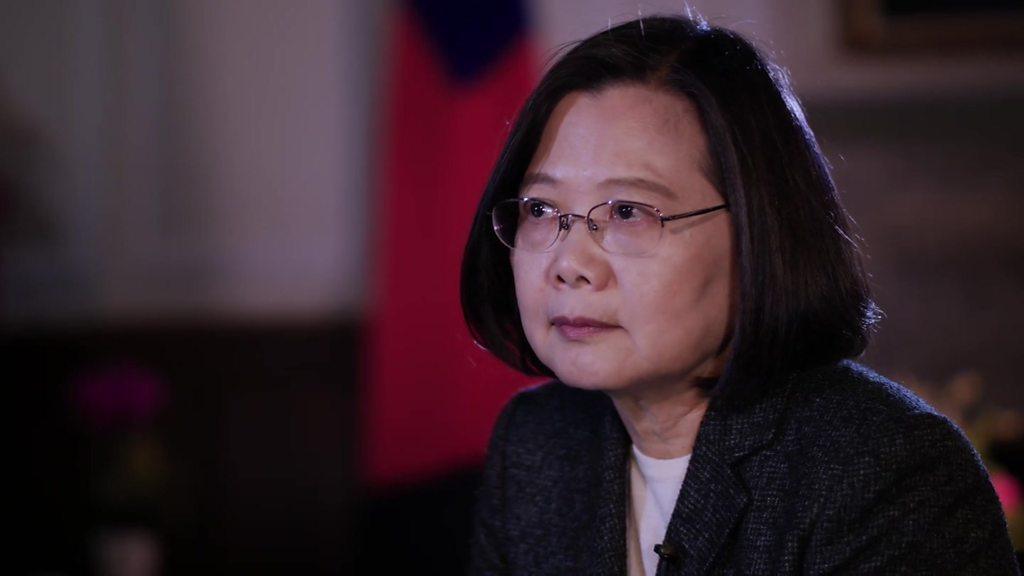Taiwan's redesigned passport shrinks words 'Republic of China'
- Published
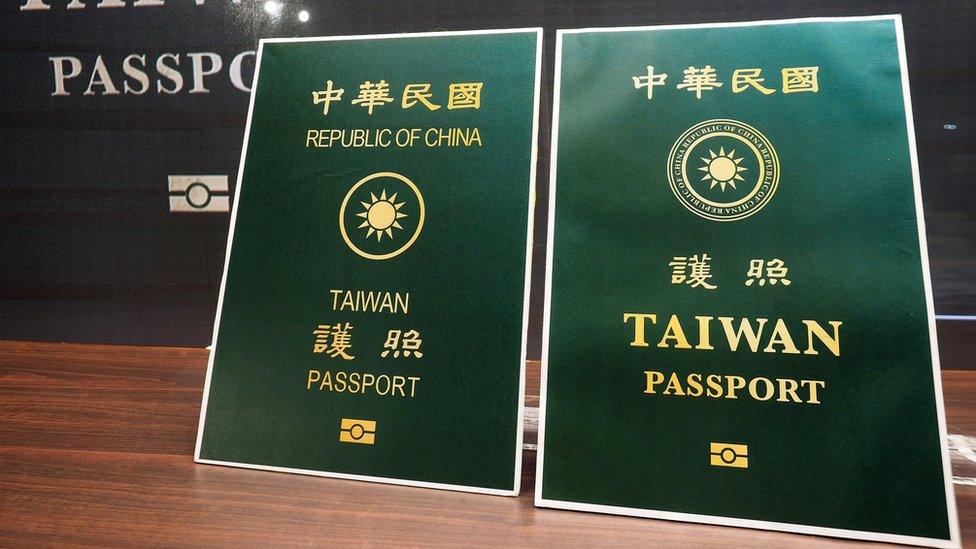
The new passport, right, makes Taiwan larger and Republic of China smaller than on the old passport, left
Taiwanese officials have announced changes to the passport design, making the word "Taiwan" larger and shrinking the words "Republic of China".
Authorities said the redesign was to stop confusion between its nationals and citizens of China.
The island is for all practical purposes an independent state but China sees it as a breakaway province.
A Beijing foreign ministry spokeswoman said this would not change Taiwan being an "inalienable part of China".
Officials unveiled the new passports at a ceremony on Wednesday.
The English words Republic of China - Taiwan's official name - will be moved from the top of the cover to instead wrap around the national emblem in a smaller font, and the English word Taiwan will be larger and in bold.
Since the start of the coronavirus pandemic "our people have kept hoping that we can give more prominence to Taiwan's visibility, avoiding people mistakenly thinking they are from China", Taiwan Foreign Minister Joseph Wu told reporters.
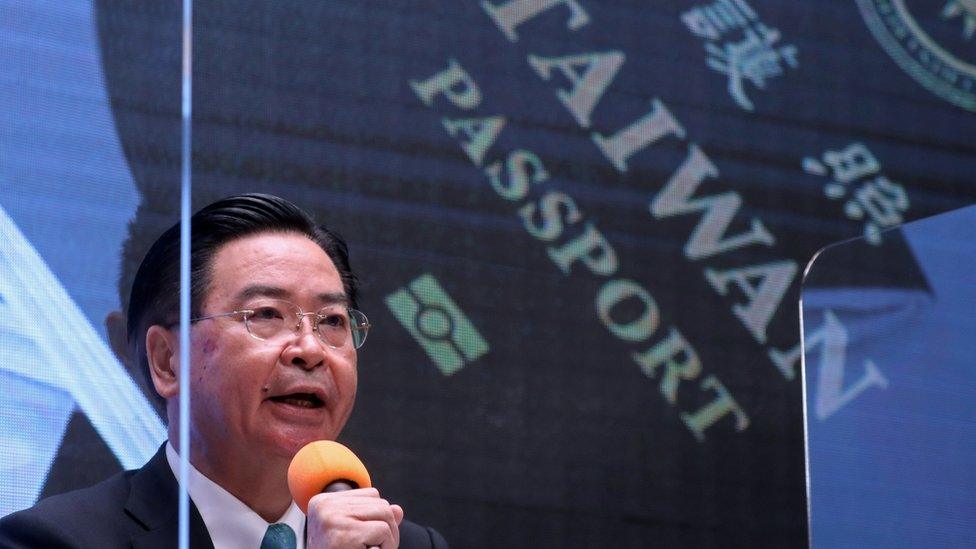
The foreign minister unveiled the new passports on Wednesday
As countries have imposed travel bans in a bid to combat the outbreak they have imposed the same restrictions on travellers from Taiwan as from China, authorities have said.
The spread of Covid-19 has brought the Taiwan dispute back to prominence.
While it has won international praise for its handling of the health crisis, it is not a member of the World Health Organization (WHO). China has not allowed it to attend any WHO meetings since 2016.
Taiwan has governed itself since 1949, when the mainland government fled to the island after its defeat by the Communist Party in China's civil war. It has its own democratically elected government, its own army and its own currency.
But under the One China policy, the government in Beijing insists it is the legitimate ruler of Taiwan. It says the territory will one day come under its leadership again - by force if necessary.
President Tsai Ing-wen tells China to “face reality” and show Taiwan respect
Few countries diplomatically recognise Taiwan as a sovereign nation, and China has reacted furiously when countries, dignitaries or businesses have suggested as much.
Milos Vystrcil, Senate speaker in the Czech Republic, visited Taiwan on Tuesday. He gave a speech to its parliament announcing his support and declaring "I am Taiwanese" - a reference to US President John F Kennedy's famous "Ich bin ein Berliner" speech in 1963.
Chinese Foreign Minister Wang Yi denounced the move, saying Mr Vystrcil had "crossed a red line" and said he would "pay a heavy price".
It came just weeks after US cabinet member Alex Azar travelled to Taiwan and met President Tsai Ing-wen. The health and human services secretary was the highest-ranking US politician to hold meetings on the island for decades.
“China firmly opposes any official interactions between the US and Taiwan,” a foreign ministry spokesman said, external when the visit was announced.
“We urge the US… not to send any wrong signals to ‘Taiwan independence’ elements to avoid severe damage to China-US relations.”
- Published10 August 2020
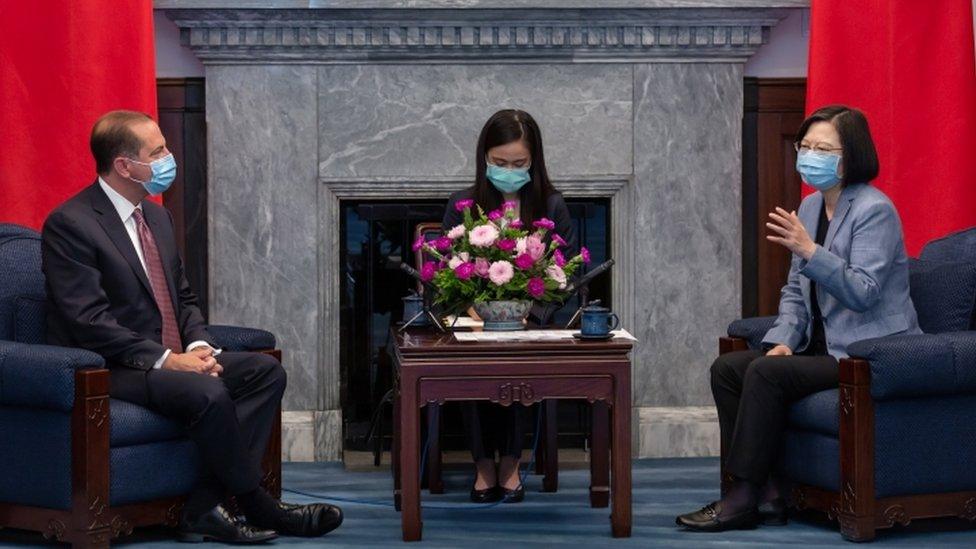
- Published7 June 2020
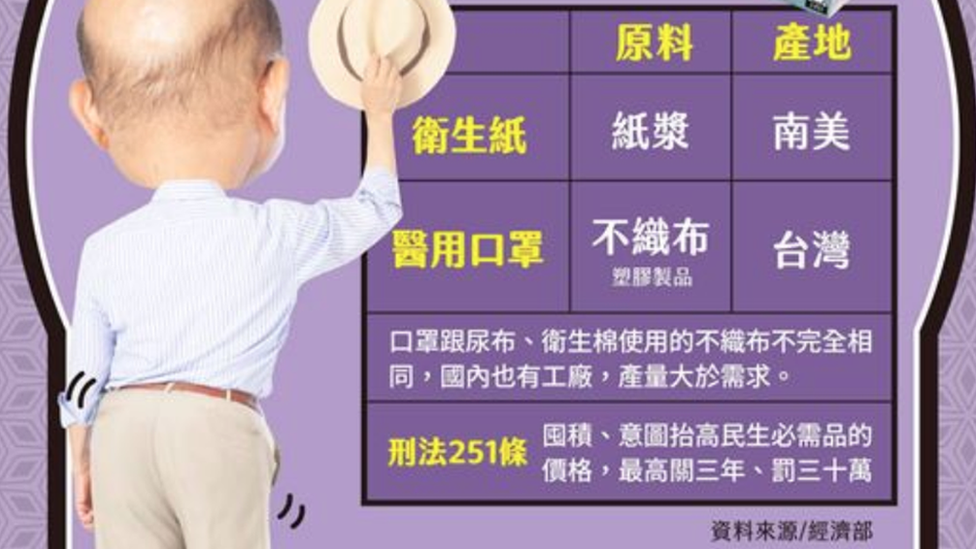
- Published30 March 2020

- Published14 January 2020
